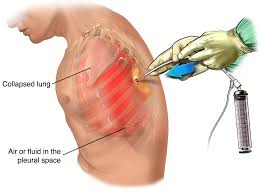Understanding Edema: Causes, Symptoms, and Remedies
Learn about why water is stored in the human body, the causes and symptoms of edema, and effective remedies for reducing swelling. Edema can affect any part of the body


Causes of Water Retention in the Human Body
Water retention, medically referred to as edema, is the result of excess fluid building up in the body's tissues. The etiology of this condition is multifaceted, influenced by dietary, lifestyle, and physiological factors. One of the primary causes is high sodium intake. Sodium-rich diets induce the body to retain water, maintaining an essential electrolyte balance but often leading to swelling in various parts of the body.
Poor circulation is another significant contributor. Inadequate blood flow can cause fluid to accumulate in the lower extremities, particularly during prolonged periods of sitting or standing. This situation can worsen in individuals with underlying cardiovascular issues such as heart failure, where the heart's reduced ability to pump blood effectively leads to fluid retention.
Hormonal fluctuations also play a critical role. Particularly in women, hormonal changes related to menstruation, pregnancy, or menopause can trigger water retention. These changes can alter the permeability of blood vessels, making it easier for fluid to leak into surrounding tissues.
Certain medical conditions can lead to systemic water retention. Kidney disease impairs the body's ability to filter and excrete excess fluids, while compromised liver function, often due to conditions like cirrhosis, can lead to imbalances that favor fluid accumulation. Heart failure, as mentioned, compromises the circulatory system, which in turn affects fluid balance.
Lifestyle factors should not be overlooked. Physical inactivity, such as prolonged sitting or standing without breaks, contributes to poor circulation and subsequent fluid buildup. Medications like NSAIDs (non-steroidal anti-inflammatory drugs) and certain blood pressure medications can also side-effectively cause edema by interfering with kidney function or altering vascular permeability.
Understanding the myriad causes of water retention is crucial in addressing and mitigating its symptoms. By identifying the specific contributors in an individual's scenario, targeted treatments and lifestyle adjustments can effectively reduce or alleviate this often discomforting condition.
Recognizing the Symptoms of Water Retention
Identifying water retention is crucial for timely intervention and effective management. Typically, water retention manifests through various physical signs, with some being more apparent than others. A common indicator is localized swelling, particularly in the ankles, legs, wrists, and abdomen. This swelling occurs due to the accumulation of excess fluids in the tissues and can vary in severity from mild puffiness to significant bloating.
Unexplained weight gain is another frequent symptom. Individuals may notice an increase in their body weight over a short period, despite maintaining their usual diet and exercise routines. This sudden weight gain can often be puzzling, leading to further investigation and typically reveals the presence of retained fluids.
In addition to swelling and weight gain, those experiencing water retention may feel a sense of heaviness or tightness in the affected areas. The skin over these regions might feel stretched or tense, adding to the overall discomfort. Stiffness or aching in the swollen areas is also a significant symptom, often exacerbated by prolonged periods of standing or sitting.
Another notable sign is pitting edema, a condition where pressing on the swollen area leaves an indentation or ‘pit’ that remains visible for a few seconds before gradually filling back in. This symptom, in particular, tends to be most noticeable in the lower extremities.
Understanding these symptoms and how they manifest allows for better identification and monitoring of water retention. Recognizing the early signs can lead to prompt action, potentially alleviating discomfort and preventing complications associated with prolonged fluid retention.
Effective Remedies for Reducing Water Retention
Addressing water retention requires a multifaceted approach that combines lifestyle modifications, dietary adjustments, and sometimes medical interventions. One of the primary strategies is to reduce salt intake. Sodium causes the body to retain water, so limiting salty foods and avoiding adding extra salt to meals can significantly alleviate symptoms. Reading food labels and choosing low-sodium options can also be beneficial.
Staying adequately hydrated may seem counterintuitive, but drinking plenty of water helps to flush out excess sodium and reduce water retention. Aim to drink at least eight glasses of water a day, or more if you are physically active or live in a hot climate.
Engaging in regular physical activity can help reduce water buildup. Exercise stimulates blood circulation and promotes the excretion of excess fluid through sweat. Activities such as walking, running, cycling, or even yoga can be effective. In addition, elevating swollen limbs periodically can aid in preventing fluid from pooling in the extremities, which is a common symptom of water retention.
Another natural remedy involves consuming foods and natural diuretics. Foods rich in potassium, such as bananas, avocados, and spinach, help balance sodium levels in the body and promote urine production. Dandelion extract is a well-known herbal diuretic that can also help increase urine output and reduce water retention.
In cases where water retention is linked to underlying medical conditions or medications, consulting a healthcare provider is essential. They may prescribe specific treatments or medications that can address the root cause of the retention. For women, hormonal changes due to menstruation, pregnancy, or menopause can also lead to water retention, and speaking with a doctor about these issues may be necessary.
A comprehensive approach that integrates these strategies can manage and reduce water retention effectively, improving overall health and comfort. It is always advisable to approach these remedies with caution and, where necessary, consult with healthcare professionals to tailor the plan to individual health needs and conditions.
